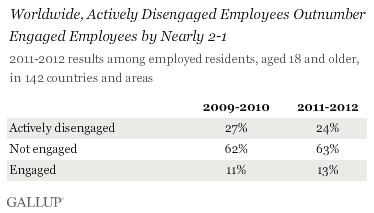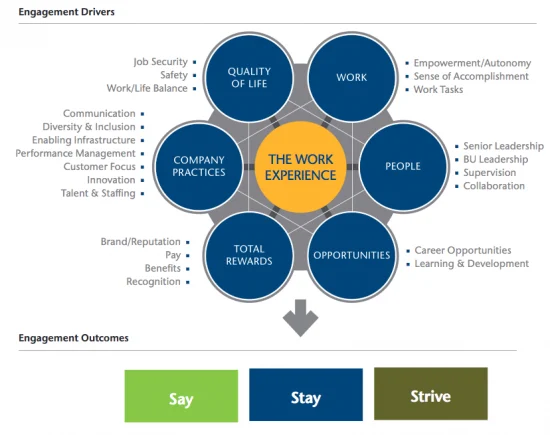A Gallup survey finds that only 13% of employees worldwide are engaged at work.
“In other words, about one in eight workers — roughly 180 million employees in the countries studied — are psychologically committed to their jobs and likely to be making positive contributions to their organizations.”
“The bulk of employees worldwide — 63% — are “not engaged,” meaning they lack motivation and are less likely to invest discretionary effort in organizational goals or outcomes. And 24% are “actively disengaged,” indicating they are unhappy and unproductive at work and liable to spread negativity to coworkers. In rough numbers, this translates into 900 million not engaged and 340 million actively disengaged workers around the globe.”
An Aon Hewitt study using a different methodology found 40% of employees are “passive or actively disengaged.”
Susan LaMotta in the Harvard Business Review: “As a former HR leader for a Fortune 500 company, I’m all too aware of how flawed the system is. There are just too many external influences that affect employees’ performance. In fact, as my current team at exaqueo reviewed client data to help them address their problems with engagement, we confirmed that most employee engagement models are centered around the work experience and not on the employees.”
“That’s the core problem. When we only try to understand and affect what happens at work, we ignore the most basic tenet of person-organization fit: employees bring their whole selves to work. What happens after the workday may be just as important as what happens during it.”


